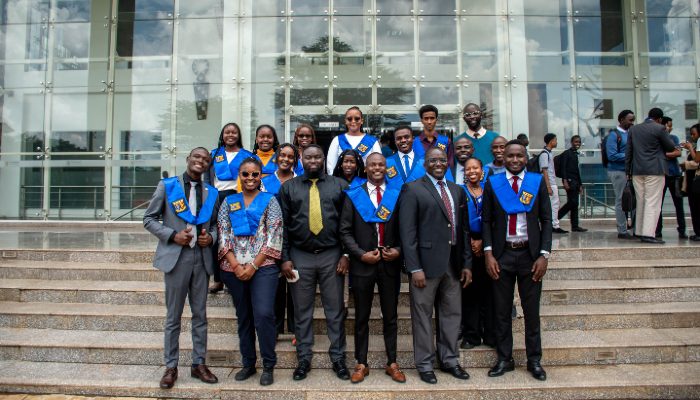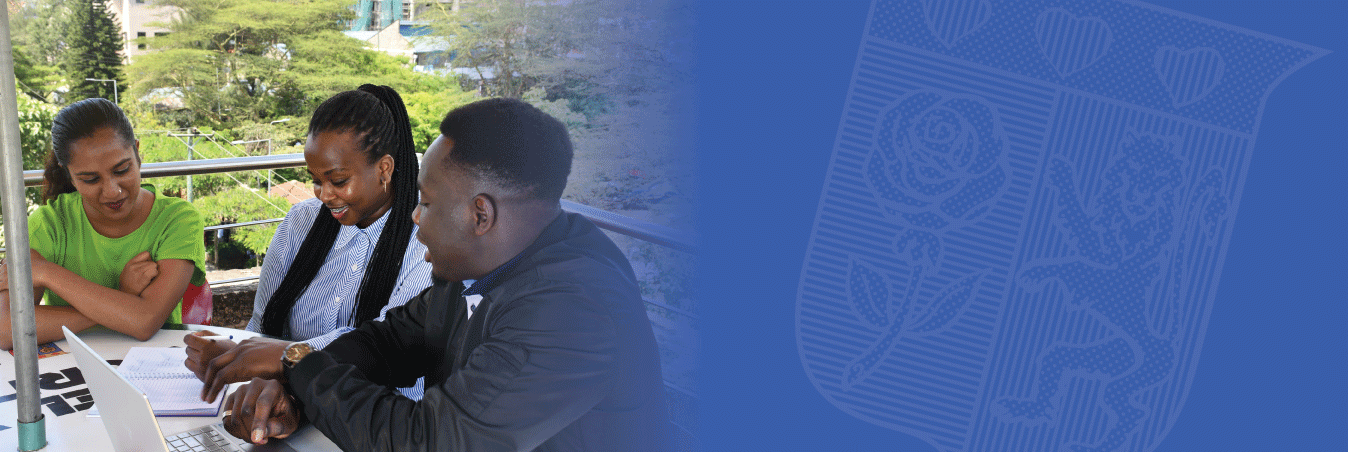In the realm of communication and rhetoric, inspiration often strikes unexpectedly. For Namachanja Ashley, a proud alumna of Strathmore University and now a seasoned communication professional at Edelman, that spark ignited during a memorable afternoon in Oval Building’s Zumaridi room. Recently, in a heartfelt discussion, Namachanja opened up about her journey with her book “Monologues of Morality” (M.O.M) and how its pages intertwine deeply with her passion for social sustainability.
Where it all began….
The title Monologues of Morality M.O.M came to mind during a Communication and Rhetoric class, then taught by Dr. Akidiva. The assignment was to come up with a project in either of the forms of communication – written, audio, and/ or visual – that would ultimately persuade the given audience to a particular call to action. It was a very hot afternoon in the Oval Building’s Zumaridi room, I recall. The ideation of exploring the Four Cardinal Virtues through four monologues of fictional Kenyan characters often assumed to either possess or deny these virtues felt extremely right.
The Four Cardinal Virtues of Prudence, Justice, Temperance, and Fortitude were brought forth by Stoics and multiple ancient scholars. This ethical system suggests that these virtues form the foundation of natural morality, as human beings can possess and practice them through practical ethics – determining the best way to live while fostering positive relationships with others. These virtues were believed to be that which is needed for eudaimonia, the highest human good obtainable as its own end (to strive for good) and not a means to some other end (to strive for good for the sake of another thing, for example appraisal from others for having done something noble). To my understanding, to have had these four virtues in totality and practicality, therefore, was to be a moral human being.
One may wonder then, what does this have to do with social sustainability?
Social sustainability involves fostering equitable, just, and inclusive communities that prioritise the well-being of individuals and groups. It encompasses aspects such as social justice, diversity, human rights, and community engagement. Contemporary societies are progressive, yet at the same time often draw inspiration from historical societies. Consider the concept of common good, for example, that which is befitting to all in a community, that which brings cohesion. The neo-form of common good in my opinion is in the surging rise of social sustainability.
The African adage “to go fast is to go alone, but to go far is to go together” is the interconnectedness human beings in societies strive to achieve through social sustainability. How best can we be each other’s keeper? The short story collection therefore aims to leverage on this discussion, by presenting the morality discourse to the reader through relatable, quirky, and challenging monologues.
The role of literature in social sustainability cannot be ignored. Communication is a vital tool in society, as it holds in itself the innate power to evoke emotion among people, which in turn evokes action, and eventually a reaction. Communication can be overt or covert. Some of the characters in M.O.M, such as Mairlyn Mumbi, overtly bring out the themes around the dualities of Temperance – chastity and impurity, faith and doubt, fleeting and lasting romances, and so on. She is quite a stunning, sultry, somewhat sassy lady who believes this life is meant to be lived, not re-lived. In her 25-year-old self, we see the budding thrills and vocalness of youth.
Other characters such as Mzee Mawazo, an elderly man who tells us stories of his life covertly bring out the depth of Prudence – decisions, family, marriage, tradition, forgiveness, and so on. What is evident in the characters is the co-dependency of humanity on one another, and the intricate responsibility we have towards one another. Morality, therefore, can be argued to be fully obtained when an individual consciously and constantly fosters social sustainability.
As our conversation draws to a close, it is clear that in “Monologues of Morality”, Namachanja finds solace in the realisation that the blend of ethics and storytelling can indeed pave the way for social sustainability. With each character and their monologue, we see the unfolding layers of human interconnectedness and the profound responsibility we hold towards one another.
In the closing pages of her book, Namachanja leaves her readers with a poignant reminder: that true morality is not merely a personal endeavour but a collective pursuit towards fostering equitable, just, and inclusive communities. Through literature and communication, she believes, we can ignite the flames of empathy, understanding, and action, propelling us towards a future where the common good is not just an ideal but a lived reality.
To purchase the book you can directly contact her through email: ashnasambu@gmail.com
What’s your story? We’d like to hear it. Contact us via communications@strathmore.edu
ALSO CHECK OUT
See more news-

Gen Francis Ogolla: How power of humility delivers transformative leadership* 25,Apr,2024
As the country mourns the Chief of Defence Forces of Kenya, General
-

Highlights from the SBS Undergraduate Fourth Years’ Gala Dinner* 25,Apr,2024
Friday, 8th March 2024 was an evening of celebration as students from the
-

Celebrating Humanities and Social Sciences 2024 graduates.* 25,Apr,2024
On Friday evening, April 19th 2024, Strathmore University held a celebratory gala
-

Elevating Tourism & Hospitality Leadership: Transformative trends shaping the future of the industry* 23,Apr,2024
On April 18, 2024, the Strathmore University School of Tourism and Hospitality
-

Towards Climate Resilience: Strathmore University, Imperial College Partnership* 23,Apr,2024
In a bid to foster joint efforts in tackling climate resilience issues,
-

Crossing Continents: Yvette Yego’s Transformative Journey through the Sciences Po Exchange Program* 22,Apr,2024
“I’ve gained extensive knowledge in international studies, interacted with diverse students from
-

Stratizens Explore Malaysian Cinema: Mechamato Screening at Sarit Center* 22,Apr,2024
Imagine being invited by the Malaysian embassy in Kenya to an exclusive
-

Strathmore Hosts the 2nd Mediation Summit on Employment Disputes* 19,Apr,2024
In a world where the dynamics of employment relations shape the very
-

Strathmore Tax Hackathon 2024: Cultivating Innovation in Tax Policy* 19,Apr,2024
In the heart of Nairobi, the prestigious Strathmore Law School hosted the
-

Transforming Mental Health Support for Students at Strathmore* 17,Apr,2024
In Kenya, within the bustling academic environment of universities, there exists a

